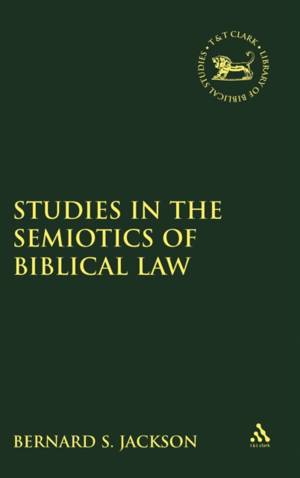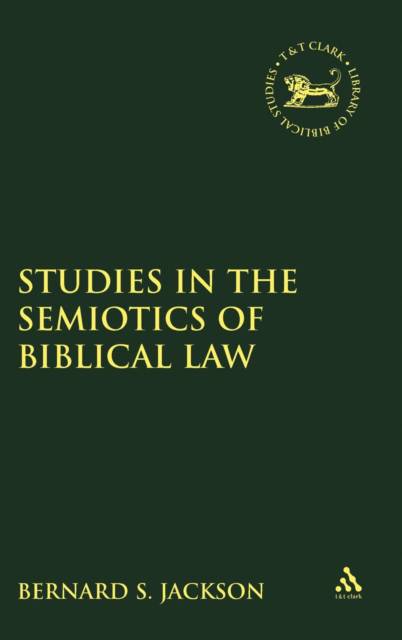
Bedankt voor het vertrouwen het afgelopen jaar! Om jou te bedanken bieden we GRATIS verzending (in België) aan op alles gedurende de hele maand januari.
- Afhalen na 1 uur in een winkel met voorraad
- In januari gratis thuislevering in België
- Ruim aanbod met 7 miljoen producten
Bedankt voor het vertrouwen het afgelopen jaar! Om jou te bedanken bieden we GRATIS verzending (in België) aan op alles gedurende de hele maand januari.
- Afhalen na 1 uur in een winkel met voorraad
- In januari gratis thuislevering in België
- Ruim aanbod met 7 miljoen producten
Zoeken
Omschrijving
This book explains and illustrates a variety of semiotic issues in the study of biblical law. Commencing with a review of relevant literature in linguistics, philosophy, semiotics and psychology, it examines biblical law in terms of its users, its medium and its message. It criticizes our use of the notion of 'literal meaning', at the level of both words and sentences, preferring to see meaning constructed by the narrative images that the language evokes. These images may come from either social experience or cultural narratives. Speech performance is important, both in the negotiation of the law and the narratives of its communication. Non-linguistic semiotic phenomena, utilizing other senses and involving such notions as space and time, also need to be taken into account. For the early biblical period, at least, conceptions of law based upon modern models need to be replaced by the notion of 'wisdom-laws'. Amongst the issues addressed in the course of the argument are the structure of the Decalogue, the role in the law of (Greenberg's) 'postulates', 'covenant renewal' and 'talionic punishment'.
Specificaties
Betrokkenen
- Auteur(s):
- Uitgeverij:
Inhoud
- Aantal bladzijden:
- 338
- Taal:
- Engels
- Reeks:
Eigenschappen
- Productcode (EAN):
- 9781841271507
- Verschijningsdatum:
- 1/11/2000
- Uitvoering:
- Hardcover
- Formaat:
- Genaaid
- Afmetingen:
- 168 mm x 243 mm
- Gewicht:
- 644 g

Alleen bij Standaard Boekhandel
+ 881 punten op je klantenkaart van Standaard Boekhandel
Beoordelingen
We publiceren alleen reviews die voldoen aan de voorwaarden voor reviews. Bekijk onze voorwaarden voor reviews.









